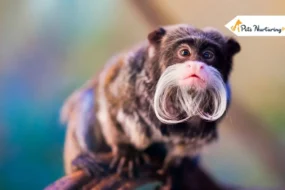
As a diligent horse owner, looking after your equine’s well-being is of utmost importance – and that includes their dental health. After all, the horse’s teeth play an integral role in digestion. If you remain neglectful towards this aspect of horse care, it may result in painful issues or other physical ailments. Let’s check the 6 handy tips on how to improve your horse’s dental health.
6 Ways to Improve Your Horse’s Mouth and Teeth
Fitting the Horse Bit

It’s essential to understand the effects of different horse bits on a horse’s dental health. A piece of metal is inserted into the mouth, allowing for control while riding. Yet it can cause distress and even harm teeth/gums if not properly fitted or used correctly. Make sure that the horse bit fits as precisely as possible so that any sort of dental trouble is minimized considerably.
Inspect your horse’s teeth on a consistent basis for any signs of wear or damage from the bit. If you spot anything out of place, immediately adjust the bit and seek advice from an experienced equine dentist. This way, you can guarantee that your companion isn’t suffering dental pain due to the use of a horse bit.
Proper Nutrition

Your horse’s teeth are “designed” to masticate fibrous plants. For a herbivore, it is vital to get a well-balanced diet of hay and fresh grass. Consuming quality forage will help your horse maintain its dental health by wearing down the enamel on their teeth and avoiding potential overgrowth. As such, nutrition is integral to the upkeep of any equine’s smile!
A balanced diet that includes appropriate grains, minerals, and supplements provides your animal with all of its necessary nutrients. Abstain from giving them too many sugary snacks or excessive grain amounts. This may result in oral issues such as tooth erosion and gum sickness.
Regular Dental Check-Ups

To keep your horse’s dental health in tip-top shape, routinely arrange appointments with a certified equine dentist. This way, any potential issues can be flagged up early and treated immediately before they progress. A specialist will inspect the mouth of your horse for broken teeth, gum ailments, or abnormally large incisors – all possible signs of oral trouble.
Dental Floating

As horses age, their molars may become overly sharp or even overgrown. This leads to serious discomfort when eating. Dental floating involves filing down these edges for improved comfort and a better ability to eat. Moreover, it helps to prevent more serious dental issues from developing. These are tooth decay and gum disease, and similar. In this case, sharp edges are smoothed down or enlarged incisors trimmed, alleviating pain when eating and drinking.
Good Hygiene

Proper horse hygiene implies brushing their teeth and gums with a soft-bristled toothbrush and equine-specific toothpaste. A regular routine will mitigate the opportunity for plaque or tartar accumulation. Additionally, frequent purging of your horse’s feed buckets of bacteria substantially maintains healthy mouth conditions. Good hygiene will lead to preventing further oral issues. Providing fresh water daily is crucial. Not only because it is a part of daily intake but also helps promote superior dental health in horses.
Monitoring for Signs of Dental Problems

To ensure your horse’s dental wellness, keep a close eye on its mouth for any signs of dental issues. Some typical indicators you should look out for include difficulty eating or dropping feed, weight loss, bad breath, and refusing a bit. If you observe any of these telltale indications, promptly schedule an appointment with your equine dentist. Early detection can help prevent more severe horse oral problems from occurring in the future.
How Often Your Horse Should See a Dentist
Regular dental check-ups are a must if you want to take good care of your horse’s teeth. How often should these assessments occur? It depends on the animal’s age, diet, and overall oral health. Experts recommend that horses get an annual dental examination – some may require more. while others can go longer between visits.
Younger equines may need more rigorous dental check-ups since their teeth are still actively developing. Regular attention is necessary to guarantee optimal teeth alignment and growth. Meanwhile, the older horse may also necessitate extra appointments due to age-related issues like gum disease or tooth decay.
What your horse eats also impacts how often it may need a visit from the dentist. Horses that are sustained mainly on hay and forage can require more frequent examinations than those fed primarily grain-based diets. This is due to the fibrous character of hay/forage leading to uneven wear or sharp points, which can result in teeth issues.
Conclusion
To ensure that your equine companion receives the proper care they need, follow the six tips mentioned above. With consistent dental care, you can guarantee your horse a long and content life. Always keep in mind: The condition of your horse’s teeth and mouth reflects the overall health state of your animal.
Discover more:











